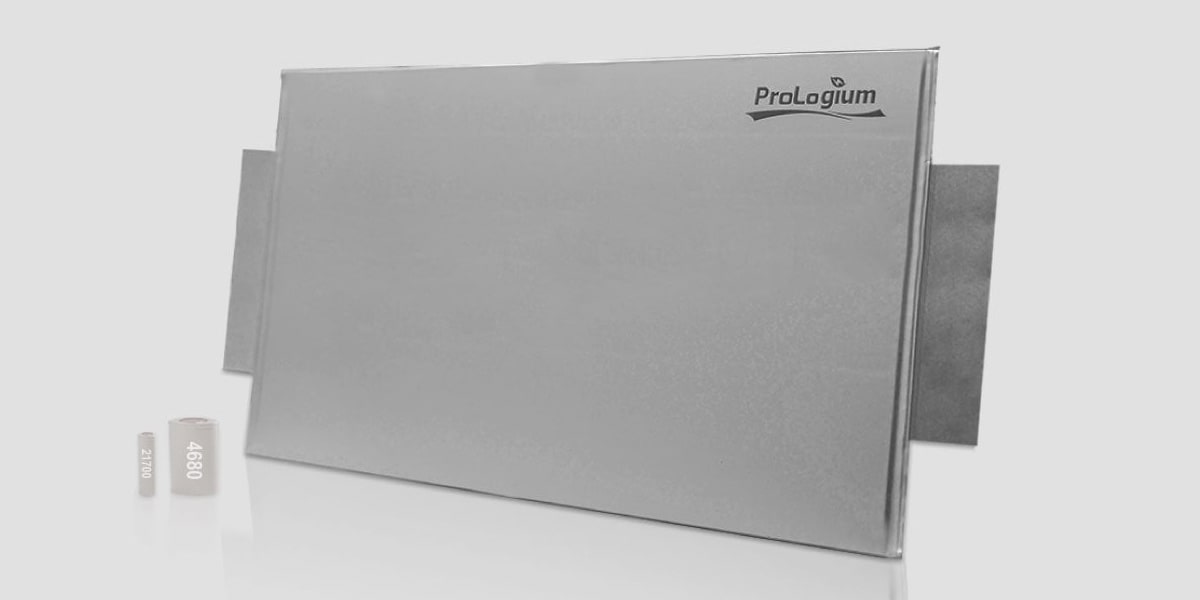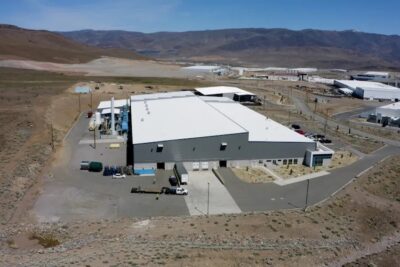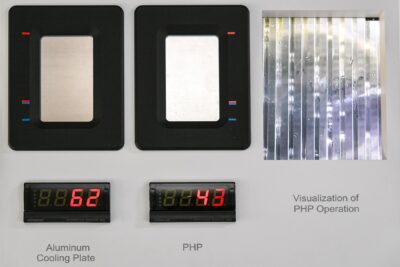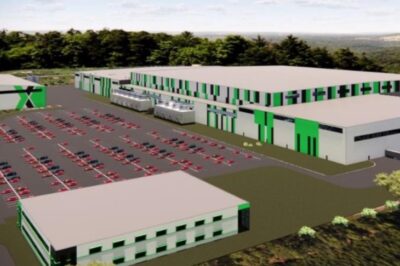ProLogium creates solid-state battery pack with higher energy density
The Taiwanese solid-state battery cell manufacturer ProLogium presented its new large-footprint lithium ceramic battery (LLCB) for the first time at the ees Europe trade fair in Munich. The first units will be delivered to European car manufacturers for testing as early as the end of this year.
ProLogium already presented solid-state battery packs at CES 2020 and has since concluded several partnerships with carmakers. Mercedes-Benz and VinFast, among others, financially support the company, which is said to be among the developers with the most promising progress in the commercialisation of solid-state batteries. According to ProLogium, with the large-footprint lithium ceramic battery, the Taiwanese company has reached the next stage.
The LLCB allegedly allows for nearly double the volumetric energy density compared to a standard 2170 round cell battery pack, while significantly reducing the weight and number of cells in the pack – all within the same footprint. The company mentions a weight reduction of up to 115 kilograms; no concrete values are given for the volumetric energy density and the number of cells.
ProLogium also roughly outlines the battery system’s other features. For example, the Taiwanese do away with parallel connections in the battery pack and the “simplified pack structure” is supposed to facilitate maintenance and reduce operating costs. In addition, the flat shape of the LLCB and the “excellent thermal conductivity of the solid-state ceramic electrolyte combined can make the design of pack cooling system much less complex, thereby optimising space utilisation”.
In terms of cell size, ProLogium has followed the general industry trend – especially for batteries with liquid electrolyte: “A case in point is the current trend of cylindrical battery dimension transitioning from 21 x 70 mm to 46 x 80 mm. The same concept can be applied to solid-state battery,” it says in the press release.
“The LLCB will enable greater design flexibility for EVs,” says Simon Wu, Assistant Vice President of ProLogium Technology Product Center. He adds that LLCB production processes also produce “less waste in terms of substrate materials, and the reduced number of cells will require less raw materials, which means increased sustainability and affordability.”
The first LLCB samples will be delivered to European car manufacturers for testing as early as the end of 2023. Incidentally, ProLogium is working closely with the German development service provider FEV on the development – among other things, “to carry out verification tests of the LLCB and design applicable solutions”. The two sides announced their cooperation in mid-2022.
Meanwhile, ProLogium is planning the construction of its first European factory in northern France. Construction of the 48 GWh plant in Dunkirk is scheduled to start in the second half of 2024, and production should kick off at the end of 2026. ProLogium announced in September 2022 that it would build a solid-state battery cell factory outside of Taiwan.
Meanwhile, ProLogium’s plant in Taiwan is only designed to produce up to 3 GWh. “A significant portion” of this production capacity will go to investor VinFast from 2024. In addition, both sides are considering a joint venture to build a solid-state battery factory in Vietnam. VinFast and ProLogium already signed an initial memorandum of understanding in 2021. At the beginning of 2022, Mercedes-Benz also announced a stake in ProLogium with a high double-digit million euro amount and agreed on joint development of next-generation battery cells. Posco has also been part of the investor group since last year.
“With a clear roadmap for capacity ramp-up and technology development, we are making an all-out effort to accelerate the electrification revolution by providing improved energy solutions to our partners,” says Vincent Yang, CEO and founder of ProLogium Technology. “Last year, we announced the first solid-state battery with 100% silicon oxide anode designed to enable higher energy density at the cell level. Now, we are pleased to present the LLCB, another pioneering battery concept that will take EV battery design to the next level in terms of long range, lightweight and design flexibility.”





0 Comments